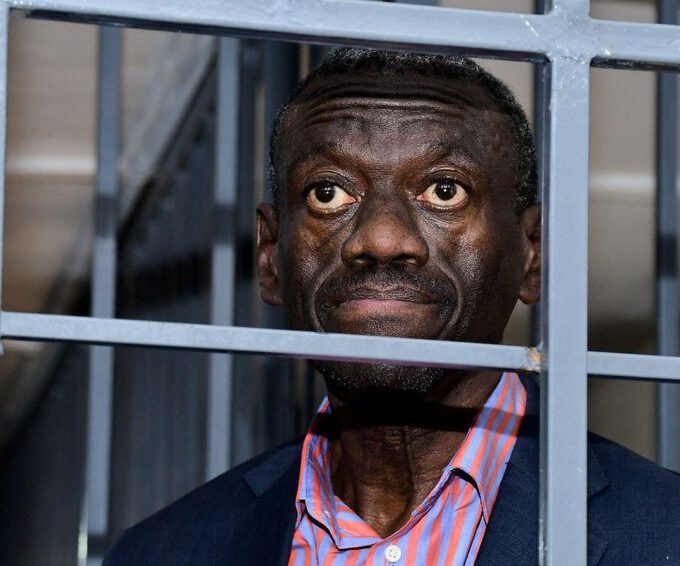Veteran Ugandan opposition leader Dr. Kizza Besigye has requested to personally address the High Court in Kampala as his highly publicized treason trial resumes. The case, charged with serious national security allegations, has become a focal point of Uganda’s political discourse amid growing concerns about the fairness of the trial and its timing ahead of the 2026 general elections.
Background and Charges
Besigye, a four-time presidential candidate and prominent critic of President Yoweri Museveni’s long-standing government, was arrested on November 16, 2024, in Nairobi, Kenya. He claims he and co-accused Hajji Obeid Lutale were abducted by Ugandan security forces and secretly transferred to Uganda without due process. Upon arrival, they were detained at Makindye Military Barracks under harsh conditions, denied legal and family contact, and initially charged before a military General Court Martial on security-related offenses, including unlawful possession of firearms and ammunition.
On February 21, 2025, following a Supreme Court ruling that civilians cannot be tried in military courts, Besigye, Lutale, and their co-accused Captain Denis Oola were re-arraigned in a civilian court, facing an amended charge sheet including treason and misprision of treason. The prosecution alleges that Besigye and his team conspired to overthrow the government through meetings held in Kampala, Nairobi, Geneva, and Athens, where they solicited financial, logistical, and arms support. These charges carry the death penalty upon conviction.
Legal Proceedings and Bail Controversies
Since then, the trial has seen multiple adjournments and intense legal battles. Besigye has been denied bail repeatedly despite spending over 270 days on remand, with his legal team arguing that he qualifies for mandatory bail under Ugandan constitutional provisions, which grant bail if the accused is remanded for over 180 days without trial. The court, however, has deferred decisions amid conflicting interpretations of remand periods and other technicalities.
Besigye’s legal counsel has emphasized the political motivations behind the charges and questioned the fairness of the proceedings, highlighting his history of compliance with bail conditions in previous high-profile cases. The opposition leader also expressed concerns about his health due to prolonged detention conditions, given his age.
Political Context and Reactions
Besigye’s arrest and subsequent treason charges have sparked widespread controversy, drawing condemnation from opposition figures, civil society activists, and human rights organizations who view the case as an attempt to stifle dissent ahead of the 2026 presidential election. President Museveni, seeking another term, and his government dismiss these allegations, insisting that those charged with serious crimes are being lawfully prosecuted regardless of political affiliations.
Besigye himself has boycotted trial sessions in the past, alleging judicial bias, and during his detention, notably undertook a hunger strike to protest what he described as political persecution. His trial is viewed as emblematic of Uganda’s contentious political environment, where opposition voices are frequently met with repression.
Current Status and Next Steps
On October 1, 2025, the High Court adjourned proceedings to October 8 to allow Besigye to personally address the court. This development marks Besigye’s intention to directly engage with the judicial process after a period of intermittent boycott and absence. The court proceedings will be closely watched, as they could influence political stability and democratic processes in Uganda in the critical months ahead of the elections.youtube.
Conclusion
Dr. Kizza Besigye’s treason case highlights the intense intersection of law, politics, and human rights in Uganda. From his arrest under highly contested circumstances to his prolonged detention and trial delays, the charges against the veteran opposition leader have transcended legal concerns to become a defining issue of political freedom in Uganda. His upcoming address to the High Court is anticipated to shed further light on his defense and the trajectory of a case that remains under the scrutiny of national and international observers.

